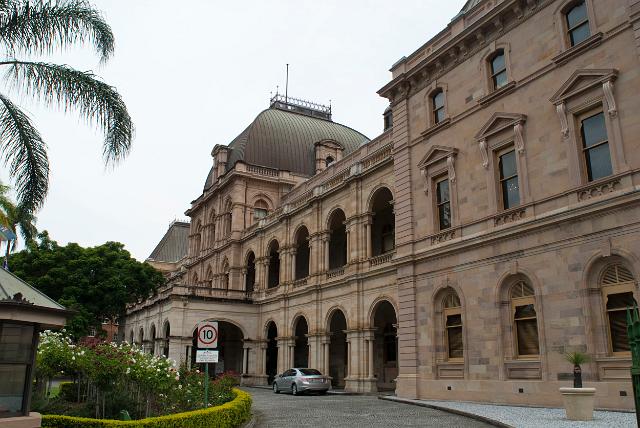Tax reform is at the top of the national agenda as Australia grapples with structural upheaval in the economy, and comes on the back of almost a quarter century of uninterrupted economic growth. The Federal Government has said it is committed to fiscal discipline in order to return to surplus, and the States and Territories are faced with the challenge of unfunded Health and Education spending out to 2024-25.
This week in Sydney, a special ‘Leaders’ Retreat’ was held in an attempt to find common ground on the path forward, and the Better Tax discussion paper released on 30 March this year underpinned the conversation.
A key outcome of the Leaders’ Retreat was a commitment to lowering the GST threshold on overseas purchases from $1,000 to $20. This will have an impact on the Federal and State budgets, consumers, and exposed enterprises, but should come as no surprise given the Federal Government has been signalling its intention for some time now.
New South Wales Premier Mike Baird publicly went into the Leaders’ Retreat advocating a 50% increase in the GST and a mechanism for compensating the most vulnerable in the community. Queensland Premier Annastacia Palaszczuk proposed raising the Medicare levy from 2% to 4%. Neither of these suggestions was met with unanimous support, but there was a commitment to continue working on them as options.
CapitalHill Advisory is pleased to provide you with a summary below of the key factors considered by the Federal, State and Territory leaders over the last few days.
Key Drivers for Change
The recent Intergenerational Report showed that continued steps to boost productivity and encourage higher workforce participation will be critical to driving future economic growth. These steps include changes to our tax system
Financial deregulation, the growth of multinational companies and the increasing digitisation of global commerce, pose substantial challenges to the tax system
Global tax avoidance activities and bracket creep continue to inhibit the efficiency of the tax system
To achieve a more efficient and effective federation, a re-distribution of tax resources is needed
Our tax system remains highly complex, with significant resources spent on tax compliance and tax management activities
The tax system is highly progressive as such interactions between the tax system and the transfer system can discourage workforce participation
Some personal savings are taxed at full marginal rates while others are not. This can affect people’s choices about how to save without necessarily doing much to increase domestic savings overall
Global Cyber Economy
Australia’s tax system was designed well before the advent of the internet, and the most significant recent structural reform (the GST) was implemented more than 15 years ago. Tax reform is generally accepted to be overdue in the digital space, and the current Federal Government has left no doubt about its commitment to tackling the issue.
The prevalence of the internet has weakened the ability of tax systems to raise revenue from traditional tax bases and can increase the economic costs of taxation, dampening economic growth. By reducing the threshold on imported consumer goods from $1,000 to $20, Australia’s regime is brought into line with countries like the United Kingdom and Canada, but also remains more lax than the United States, whose threshold is zero.
Business Tax System Reform – Lowering the Corporate Tax Rate
Australia’s high corporate tax rate can deter investment and lead to profit shifting as well as tax planning strategies. Changes in the global economy mean that the flow of financial capital and labour is becoming increasingly sensitive to Australia’s tax settings.
As an economy reliant on imported capital, determining the appropriate tax outcome for a particular company in a specific country becomes difficult and raises concerns about the ability of companies to relocate profits to minimise their tax
Real growth in GDP is projected to average 2.8% p.a. going forward, compared to an average of 3.1% p.a. over the past 40 years. Tax reform is part of the Government’s strategy to sustain economic growth amidst an ageing workforce and a reduction in revenue from the mining sector
Australia’s corporate tax rate is high compared to many countries we compete with for investment, especially those in the Asia-Pacific region
The United Kingdom, Canada and Singapore have all reduced their main corporate tax rate
Australia’s corporate tax system is extremely complex. Distinctions embedded within the system create unintended biases towards particular forms of investment, distort business decisions and increase incentives to engage in tax planning.
Lowering the corporate tax rate has become increasingly important as competition for foreign investment intensifies and businesses become more mobile
Potential Changes affecting Business
The Treasurer has flagged a variety of potential reforms to the tax system, many of which could affect your business. For example:
The strengthening of transfer pricing rules to counter corporate tax evasion and to bring them into closer alignment with international best practice
Changes to business financing arrangements, including a re-assessment of tax-induced bias toward debt finance
An assessment of the value of the imputation system, when many other OECD countries provide alternative forms of shareholder relief that seek a similar outcome
Reform in the context of trusts, specifically addressing the issue that income received by trusts may not retain its character for tax purposes when passed on to beneficiaries.
Potential changes to tax compliance costs for small businesses to improve overall productivity
Reassessment of tax concessions given to small businesses and the complexity of the current system including the value of capital gains tax.
Instead of multiple concessions across the tax system, an alternative option that could be considered is to apply a lower or zero tax rate for small businesses
Potential changes to the special provisions provided for certain industries such as agriculture and life insurance
The Government will be soon releasing an options (green) paper for further community consultation on possible reforms to improve the tax system.
A deeper analysis of what potential reforms could mean for the future of the Australian economy could strengthen business planning processes as well as prepare your business for a changed fiscal environment.
Further information
To download the Better Tax discussion paper, click here.
For a transcript of the speech delivered by the Treasurer, the Hon. Joe Hockey MP, addressing the PWC Tax Reform Forum on 15 July 2015, please click here.



